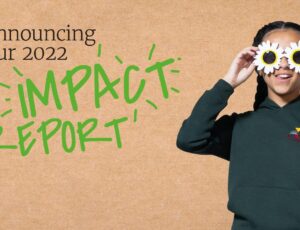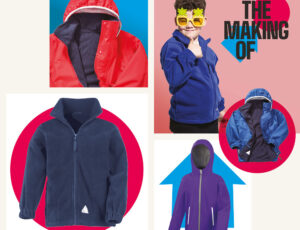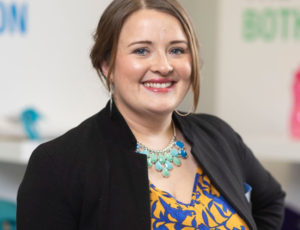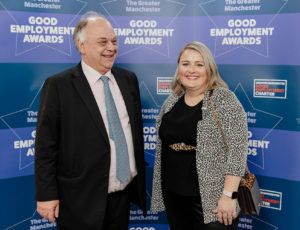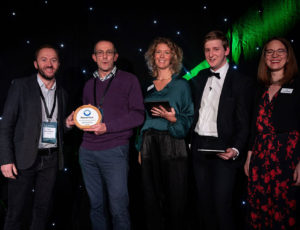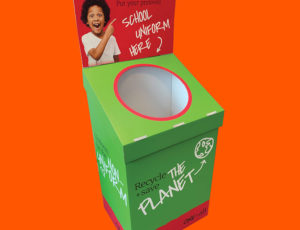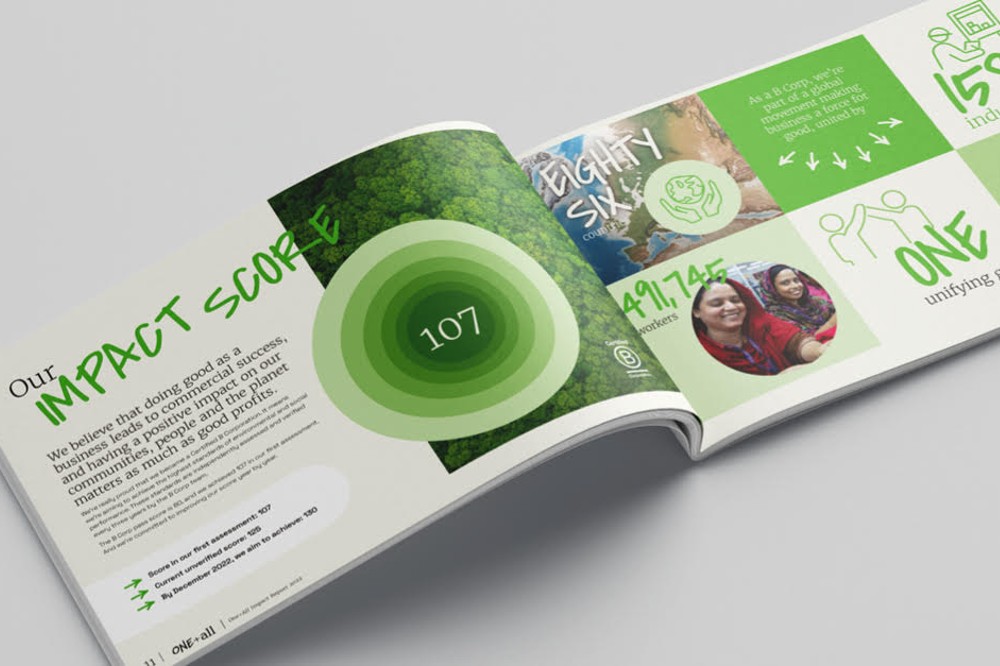
Stockport-based schoolwear supplier One+All recently published its first Sustainability Impact Report following its B Corporation certification in August 2020, providing insight into its sustainable practices and initiatives for people, community and the planet. CWB learns more about the findings and why every business − supplier or retailer, big or small − should consider measuring their impact.
So, what is an impact report and why should you consider producing one? Within all business sectors, increased focus is being placed on companies’ actions when it comes to ethics and sustainability. For those making change for the better, an impact report helps measure performance, supports targets and goals, and encourages accountability, as well as creating a key tool to communicate findings engagingly.
For certified B Corps, which includes One+All, it is compulsory to produce impact reports. To maintain certification, B Corps have to recertify every three years to demonstrate they are meeting standards. They are also required to produce an annual impact report to share their progress against their goals and remain publicly accountable and transparent about their impact.
As part of its work on sustainability, One+All teamed up with the GC Business Growth Hub, which provides business support to SMEs in Greater Manchester to help them grow and increase prosperity in the region. In her role as an Eco Innovation Advisor at the GC Business Growth Hub, Elizabeth Elliot helps companies like One+All to develop new products and services that reduce environmental impact. Support provided to One+All included research to help identify eco innovation opportunities for the business, leading to developments in the sustainability of packaging and end of life recycling of textile garments, as well as connecting the company to academics and relevant networks in textiles recycling. On reviewing One+All’s report, Elliot notes a real terms reduction in carbon emissions while growing turnover as a key highlight, showing economic growth does not have to be coupled with more negative environmental impact.
“One+All’s impact report shows that its transparent, people-centric approach means it can be commercially competitive whilst providing ethical employment and support to its supply chain partners,” she says. “The business has achieved consistent growth while taking meaningful steps to have a positive environmental and social impact. This is something we are keen to highlight to other small businesses we work with – ‘doing the right thing’ can actually be an opportunity, rather than just a cost.”
When it comes to transparency, One+All’s impact report has not shied away from facing up to the issue of greenwashing. As Elliot comments, “In a rare turn of events, One+All also admits to mistakes – it isn’t the only company discovering recycled polyester isn’t quite what it’s cracked up to be.” The report highlights One+All’s claims relating to the use of recycled polyester in some of its garments. Products that claim to contain recycled polyester must include a minimum of 20% recycled content. One+All commissioned independent tests of its recycled polyester garments and a number of garments made by other brands. The tests disclosed that not a single product tested, including non-One+All garments, was made from 100% recycled plastic bottles. As a result, One+All withdrew its claims of 100% recycled polyester from its garments, with its Performa Eco Blazers and Jackets and Eco Ties now carrying the message, ‘I contain recycled plastic bottles.’
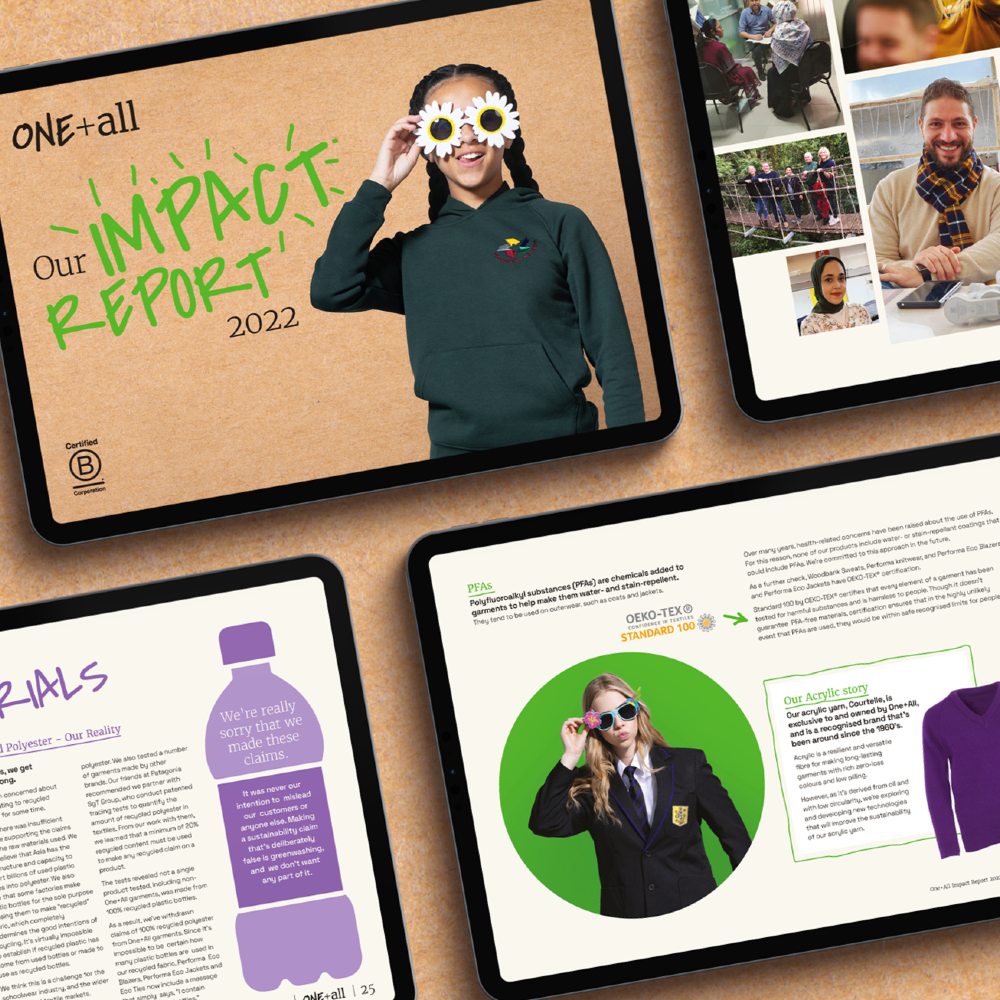
Impact on people
One+All’s report addresses impact on people – its colleagues, customers, supply chain and communities – and the planet. In terms of people, key findings reveal how the company’s long-term partnership with ETI is improving the lives of colleagues and workers in its supply chain. Ninety per cent of its overseas workers say they now have a better quality of life due to improved health – supported by access to clean water via One+All’s gifted water filter systems – as well as feeling safe in their workplace and being paid more. By becoming a member of the Better Cotton™ initiative in January 2022, One+All is also part of a movement to take better care of the people, communities and environment of those working in the cotton supply chain.
Closer to home at its UK headquarters, One+All has been sharing profits fairly since 2015 when it became employee owned. And during the pandemic, its higher paid colleagues volunteered to take a salary cut, ensuring those lower-paid received 90% of their salary during periods of furlough. More recently, the company has been helping its colleagues combat the cost of living crisis by paying all colleagues additional tax-free payments in March and October 2022. Interest free crisis loans are also available to those in need of emergency funds.
Elsewhere, the report covers One+All’s support of various initiatives to help improve its local communities, including becoming one of the first six members of the Greater Manchester Good Employment Charter, which helps deliver better employment standards, good jobs and a thriving local economy, as well as being an active member of the Stockport Climate Action Now forum. In addition to teaming up with like-minded organisations to raise awareness of sustainability and ethical business practices, company Chair Donald Moore is heavily involved in work on poverty in and around Greater Manchester and across the UK, engaging with businesses and leaders to think more about their people and the wider context.
“Before winter, one in four children in Greater Manchester was living in poverty,” confirms Moore. “Children who don’t qualify for free school meals are taking an empty lunchbox to school and pretending to eat – these are children of working parents. Shoplifting has increased too, and the most popular item being stolen is baby food. The second is period products. These aren’t luxuries.
“With over 20% of workers in the UK receiving lower than the Real Living Wage, paying the lowest paid a higher wage is really important. As an accredited Living Wage employer, we’ve played our part in shifting that and helping people to be paid more, and we’re now also involved with food banks and have contributed to work for the government on Universal Credit.
“Ultimately, we’re trying to get businesses and leaders to think more about these issues and their people, because we all need to be looking at how we can reduce inequalities. These are areas we have always believed in as a business − looking after the lower-paid and caring for those less fortunate in our supply chain − so this work is an extension of that.”
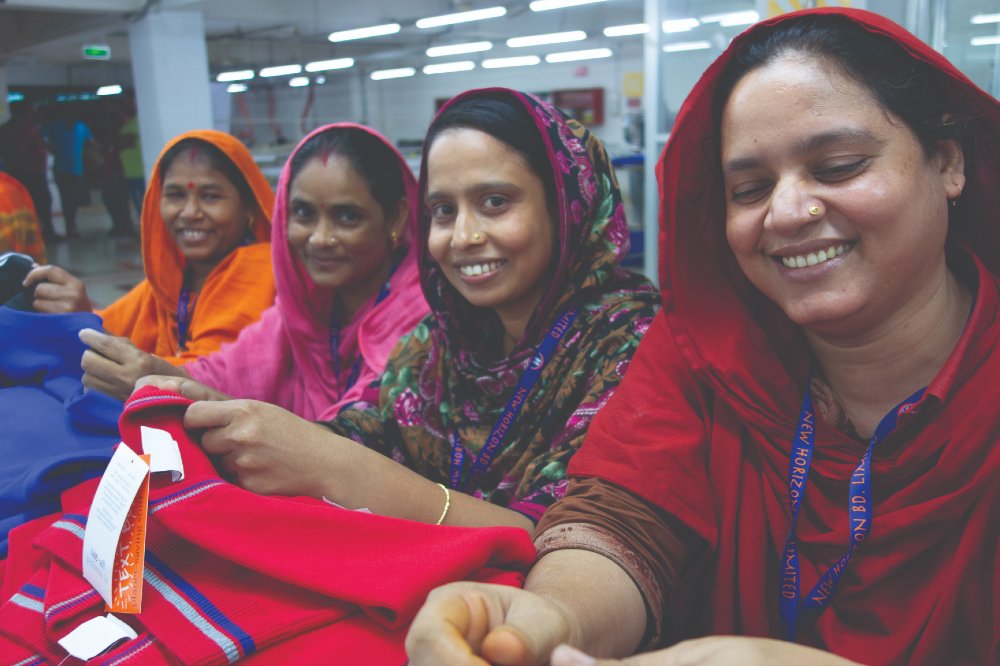
Impact on the planet
In terms of its impact on the planet, One+All became Planet Mark certified in 2018 to enable it to improve measurement and reduction of its carbon footprint. To maintain certification, it must continue to achieve an annual reduction of 5% or more. The report shows that since 2018, One+All’s emissions have reduced from a total footprint of 598 tCO₂e to 540.8 tCO₂e in 2021.
A certified CarbonNeutral® business and a Carbon Literate business to Bronze level, some of the initiatives to support the reduction and offset of carbon emissions include installing a solar photovoltaic panel system at its UK headquarters, which produces 100% renewable energy; introducing carbon neutral 70% sugarcane/30% recycled polythene garment bags, and working with a local waste management social enterprise to recycle close to 95% of its business waste. The company’s goal is to reach its net zero target by 2028 for its UK business.
Small steps to big change
Moore hopes that One+All’s honest and transparent impact report will inspire other businesses to do things differently − and to do them better − no matter how small the initial changes. “Every individual and every business should do an impact report,” he concludes. “Look at where you are and where you’d like to be and start setting some goals. Over the next year, you could measure your footprint, do a carbon literacy course, reduce your emissions by a certain percentage, walk instead of drive, switch to an EV, use less water, or buy fewer products; whatever it is, everyone should set themselves a little challenge. Whether you’re a supplier or retailer, it’s something we should all be thinking about. If you have the budget, you can pay someone to help you measure your impact, but if you don’t, engage with your local growth company or council. It doesn’t have to cost anything, and you will save money. Start with the simple things.”
Eco Innovation Advisor Elliot echoes similar sentiments. “The first important step is to decide on key metrics, the starting point for this could be the UN Sustainable Development Goals. Then collate all the data and information you currently have in the organisation – this provides a starting point to measure the impacts of all the positive steps a business can take. The GC Business Growth Hub has a wealth of specialist expertise to guide businesses on environmental and social impact. If businesses don’t know where to start then I’d welcome the opportunity to support them on their journey. To access support, businesses can contact us by email at bghinnovation@growthco.uk or via our website.”
To view One+All’s impact report, please click here.







